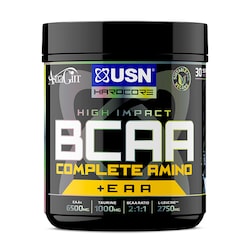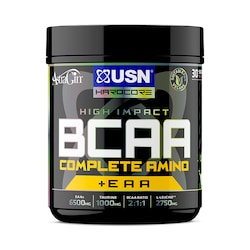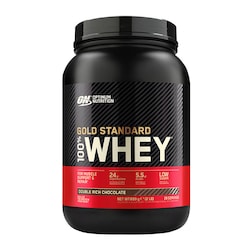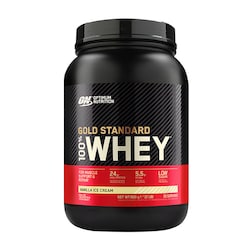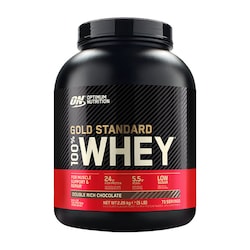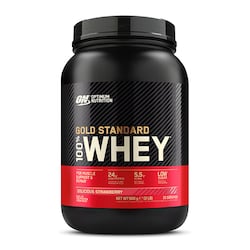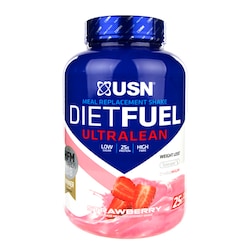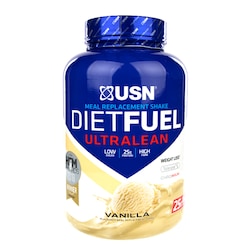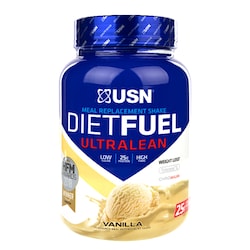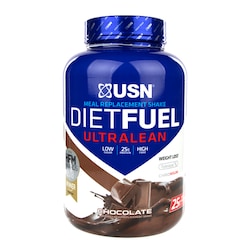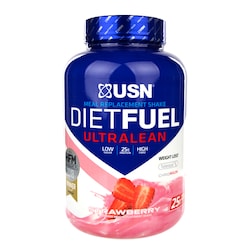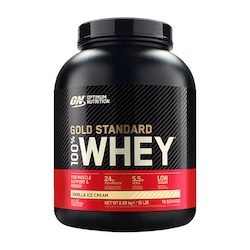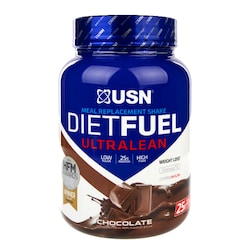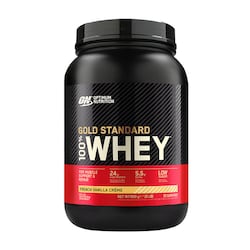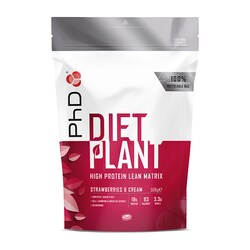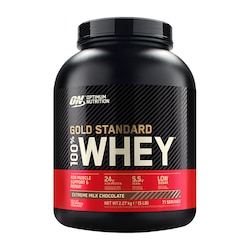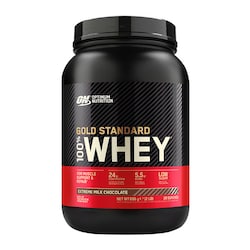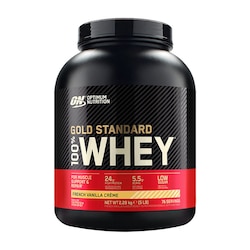20% off £30
Code:QUICK
What are the benefits of L-glutamine?
.png)
Discover the versatile benefits of L-glutamine, from aiding recovery and bolstering
immunity to maintaining muscle and supporting weight loss
Summary
1What is L-glutamine?
L-glutamine is the most abundant amino acid in your body as current literature states. Amino acids are the building blocks of proteins that give...
2Possible benefits of L-glutamine
Whether you’re hitting the gym hard, aiming to shield your health or looking to maintain a healthy weight, emerging research suggests L-glutamine...
3When to take L-glutamine
Timing is everything to maximise L-glutamine’s benefits. Post-workout is a prime time for L- glutamine, which helps reduce muscle soreness and...
Getting enough of the right nutrients is important for all sorts of reasons, from keeping your
body ticking along to supporting your immune health and more.
Most people get enough L-glutamine through the foods they eat. If you need more of it, then
your body will naturally make it.1 However, if you’re constantly pushing your limits through
exercise or looking to support your body’s recovery from stress and illness, getting more L-
glutamine could be a game changer. Let’s take a look.
What is L-glutamine?
L-glutamine is the most abundant amino acid in your body as current literature states.1
Amino acids are the building blocks of proteins that give structure to your cells and tissues. 1
Your muscles produce most of the L-glutamine in your body, delivering it to other organ
systems through blood circulation.2
L-glutamine is a conditionally essential amino acid, meaning your body can produce it under
normal circumstances. However, during times of high demand, such as prolonged exercise,
illness or injury, your body might be unable to produce enough L-glutamine to meet its
needs.1,3 In these cases, diet or supplements could boost your intake.
You’ll find L-glutamine in various foods, including animal-based options like meat, fish and
eggs, as well as dairy products such as milk and yoghurt.5
Plant-based foods, including beans, lentils, rice and tofu, also contain L-glutamine. Even
certain vegetables, such as cabbage and spinach, offer smaller amounts of the amino
acid.1,4,5
If you’re looking for L-glutamine supplements, they can come in various forms, including
powders and capsules.
L-glutamine is thought to help support muscle function and immune response.1,3 However, its
benefits for gut health are currently unclear as research thus far shows mixed results.6-8 A
clinical study in a small sample size showed that higher doses of L-glutamine supplements
for gut health may worsen gut symptoms.6

Possible benefits of L-glutamine
Whether you’re hitting the gym hard, aiming to shield your health or just looking to maintain a
healthy weight, emerging research suggests L-glutamine could be your go-to supplement for
boosting your well-being in multiple ways.
May help aid recovery
One of the standout roles of L-glutamine is its potential ability to aid recovery. Your body’s L-
glutamine levels can plummet after intense exercise or during periods of illness.
Supplementing with L-glutamine may help to restore these levels.3
Research in a number of small studies indicates that L-glutamine may reduce muscle soreness, minimise exercise-induced muscle damage, and enhance strength recovery after
tough workouts, keeping your muscles resilient and helping them bounce back from
strenuous exercise. However, it’s important to note that researchers believe further research
is required to increase reliability.9-13
On the flip side, not all research agrees. A study in 2013 showed that L-glutamine doesn’t
significantly affect muscle soreness or recovery, especially in untrained individuals.14 These
differences in findings could hinge on factors such as training levels, the dosage of L-
glutamine and the types of exercise involved.
So, while some individuals may find L-glutamine supplementation beneficial for muscle
recovery and soreness, its effectiveness might not be universal.

May increase lean body mass
L-glutamine may play a significant role in muscle protein synthesis, supporting new muscle
growth and helping to prevent muscle tissue breakdown during intense or prolonged
exercise. This could make it a valuable supplement for bodybuilders and fitness
enthusiasts.15
However, while L-glutamine may help maintain muscle mass, there’s limited evidence to
suggest that it contributes to increasing lean body mass.
An older study compared the effects of creatine alone and creatine combined with L-
glutamine on body composition. It found that while the combination improved lean body
mass and power in resistance training, the impact on body mass, lean body mass and
anaerobic performance was minimal compared to creatine alone.16 These findings suggest
that creatine, rather than L-glutamine, was the main driver behind these improvements.
Recent research also shows that L-glutamine has little effect on body composition factors,
such as fat mass and lean body mass.17
If building muscle is your goal, other supplements, such as creatine, might be more effective
when used as part of a balanced diet with adequate energy and carbs to support muscle
growth.18
May support weight management
There are hints that L-glutamine might support weight management, but the evidence isn’t
entirely clear.
In one study, women with obesity took L-glutamine for four weeks without changing their diet
or activity levels. The result was a reduction in both body weight and waist circumference.19
Another study found a decrease in waist circumference among individuals with overweight or
obesity after two weeks of L-glutamine supplementation.20
However, a contrasting study indicated that L-glutamine supplementation led to an increase
in meal size, which could hinder weight loss.21 Furthermore, recent research shows that
while L-glutamine supplementation may lead to weight reduction, it doesn’t significantly
affect other aspects of body composition, such as fat mass or lean body mass.17
Ultimately, more research is necessary to thoroughly understand the effects of L-glutamine
on weight management.

May improve immune function
Your immune system is thought to rely heavily on L-glutamine, as research suggests that it
serves as a crucial energy source for various immune cells, such as white blood cells and
certain intestinal cells. This support is essential for maintaining a robust immune response.1
During periods of intense physical stress, your body’s demand for L-glutamine can exceed
its ability to produce it.3 This deficiency may compromise your immune system, making you
more susceptible to diseases and infections.1
Supplementing with L-glutamine could possibly help ensure your immune system stays
strong, enabling you to fend off infections and heal faster.22
Current research indicates that L-glutamine supplementation may support and enhance
immune function in various ways, but further research can help experts to fully understand
the mechanisms behind these benefits.
When to take L-glutamine
Timing is everything to maximise L-glutamine’s benefits. Post-workout is a prime time for L-
glutamine, which helps reduce muscle soreness and kickstart recovery.9
If you’re recovering from illness or surgery, a healthcare professional may recommend
regular supplementation to aid your journey back to health.
Athletes and individuals performing intense exercise may opt to take L-glutamine daily,
depending on individual needs and goals.23,24
The final say
L-glutamine is a powerhouse amino acid with a wide range of potential benefits. Its potential
ability to support recovery, bolster your immune function, maintain muscle mass and help
with weight management could make it a valuable supplement for many people.
If you’re an athlete or recovering from illness or an operation, L-glutamine may provide
promising benefits, potentially offering improved health and wellness.
As always, seeking professional advice from a dietitian before starting a new supplement is
vital, especially if you have underlying health conditions.
The advice in this article is for information only and shouldn’t replace medical care. Please
check with your GP, dietitian or healthcare professional before trying any supplements,
treatments or remedies. Food supplements mustn’t be used as a substitute for a varied and
balanced diet and a healthy lifestyle.
- Cruzat, et al. Glutamine: Metabolism and immune function, supplementation and clinical translation. Nutrients. 2018;10(11):1564. DOI: https://doi.org/10.3390/nu10111564.
- Bhutia YD, et al. Glutamine transporters in mammalian cells and their functions in physiology and cancer. Biochimica et Biophysica Acta (BBA) - Molecular Cell Research. 2016;1863(10):2531–9. DOI: https://doi.org/10.1016/j.bbamcr.2015.12.017.
- Coqueiro AY, et al. Glutamine as an anti-fatigue amino acid in sports nutrition. Nutrients. 2019;11(4):863. DOI: https://doi.org/10.3390/nu11040863.
- Lenders CM, et al. Evaluation of a novel food composition database that includes glutamine and other amino acids derived from gene sequencing data. Eur J Clin Nutr. 2009;63(12):1433–9. DOI: https://doi.org/10.1038/ejcn.2009.110.
- Hodges RE, et al. Modulation of metabolic detoxification pathways using foods and food-derived components: A scientific review with clinical application. J Nutr Metab. 2015;2015(760689):1–23. DOI: https://doi.org/10.1155/2015/760689.
- Ogden HB, Child RB, Fallowfield JL, Delves SK, Westwood CS, Millyard A, et al. Gastrointestinal Tolerance of Low, Medium and High Dose Acute Oral l-Glutamine Supplementation in Healthy Adults: A Pilot Study. Nutrients [Internet]. 2020 Sep 27 [cited 2024 Jun 17];12(10):2953–3. Available from: https://www.mdpi.com/2072- 6643/12/10/2953
- Perna S, Alalwan TA, Zahraa Alaali, Tahera Alnashaba, Gasparri C, Infantino V, et al. The Role of Glutamine in the Complex Interaction between Gut Microbiota and Health: A Narrative Review. International journal of molecular sciences [Internet]. 2019 Oct 22 [cited 2024 Jun 17];20(20):5232–2. Available from: https://www.ncbi.nlm.nih.gov/pmc/articles/PMC6834172/
- Kim MH, Kim H. The Roles of Glutamine in the Intestine and Its Implication in Intestinal Diseases. International journal of molecular sciences [Internet]. 2017 May 12 [cited 2024 Jun 17];18(5):1051–1. Available from: https://www.ncbi.nlm.nih.gov/pmc/articles/PMC5454963/
- Legault Z, et al. The influence of oral L-glutamine supplementation on muscle strength recovery and soreness following unilateral knee extension eccentric exercise. Int J Sport Nutr Exerc Metab. 2015;25(5):417–26. DOI: https://doi.org/10.1123/ijsnem.2014-0209.
- Córdova-Martínez A, et al. Effect of glutamine supplementation on muscular damage biomarkers in professional basketball players. Nutrients. 2021;13(6):2073. DOI: https://doi.org/10.3390/nu13062073.
- O’Connor E, et al. Nutritional compounds to improve post-exercise recovery. Nutrients. 2022;14(23):5069. DOI: https://doi.org/10.3390/nu14235069.
- Caballero-García A, et al. Muscle recovery and nutrition. Nutrients. 2022;14(12):2416. DOI: https://doi.org/10.3390/nu14122416.
- Peres FP, et al. Hydrolyzed whey protein enriched with glutamine dipeptide attenuates skeletal muscle damage and improves physical exhaustion test performance in triathletes. Front Sports Act Living. 20234:1011240. DOI: https://doi.org/10.3389/fspor.2022.1011240.
- Rahmani Nia F, et al. Effect of L-glutamine supplementation on electromyographic activity of the quadriceps muscle injured by eccentric exercise. Iran J Basic Med Sci. 2013;16(6):808–12. Available from: https://www.ncbi.nlm.nih.gov/pmc/articles/PMC3758038.
- Raizel R, et al. Role of glutamine, as free or dipeptide form, on muscle recovery from resistance training: A review study. Nutrire. 2018;43(1). DOI: https://doi.org/10.1186/s41110-018-0087-9.
- Lehmkuhl M, et al. The effects of 8 weeks of creatine monohydrate and glutamine supplementation on body composition and performance measures. J Strength Cond Res. 2003;17(3):425–38. Available from: https://journals.lww.com/nsca- jscr/abstract/2003/08000/the_effects_of_8_weeks_of_creatine_monohydrate_and.2. aspx.
- Ahmadi AR, et al. The effect of glutamine supplementation on athletic performance, body composition, and immune function: A systematic review and a meta-analysis of clinical trials. Clin Nutr. 2019;38(3):1076–91. DOI: https://doi.org/10.1016/j.clnu.2018.05.001
- Examine. Fact check: Does glutamine build muscle? [Internet]. [cited 2024 Apr 28]. Available from: https://examine.com/faq/fact-check-does-glutamine-build-muscle
- Laviano A, et al. Glutamine supplementation favors weight loss in nondieting obese female patients. A pilot study. Eur J Clin Nutr. 2014;68(11):1264–6. DOI: https://doi.org/10.1038/ejcn.2014.184.
- Abboud K, et al. Oral glutamine supplementation reduces obesity, pro-inflammatory markers, and improves insulin sensitivity in DIO wistar rats and reduces waist circumference in overweight and obese humans. Nutrients. 2019;11(3):536. DOI: https://doi.org/10.3390/nu11030536.
- Meek CL, et al. Can encapsulated glutamine increase GLP-1 secretion, improve glucose tolerance, and reduce meal size in healthy volunteers? A randomised, placebo-controlled, cross-over trial. The Lancet. 2015;385:S68. DOI: https://doi.org/10.1016/S0140-6736(15)60383-X.
- Apostolopoulou A, et al. Effects of glutamine supplementation on critically ill patients: Focus on efficacy and safety. An overview of systematic reviews. Nutrition. 2020;78:110960.DOI: https://doi.org/10.1016/j.nut.2020.110960.
- Examine. Glutamine [Internet]. [cited 2024 Apr 28]. Available from: https://examine.com/supplements/glutamine.
- Holland & Barrett. PE Nutrition L-glutamine 500mg 100 tablets. [Internet]. [cited 2024 July 3]. Available from: https://www.hollandandbarrett.com/shop/product/pe-nutrition- l-glutamine-500mg-100-tablets-6100000347



